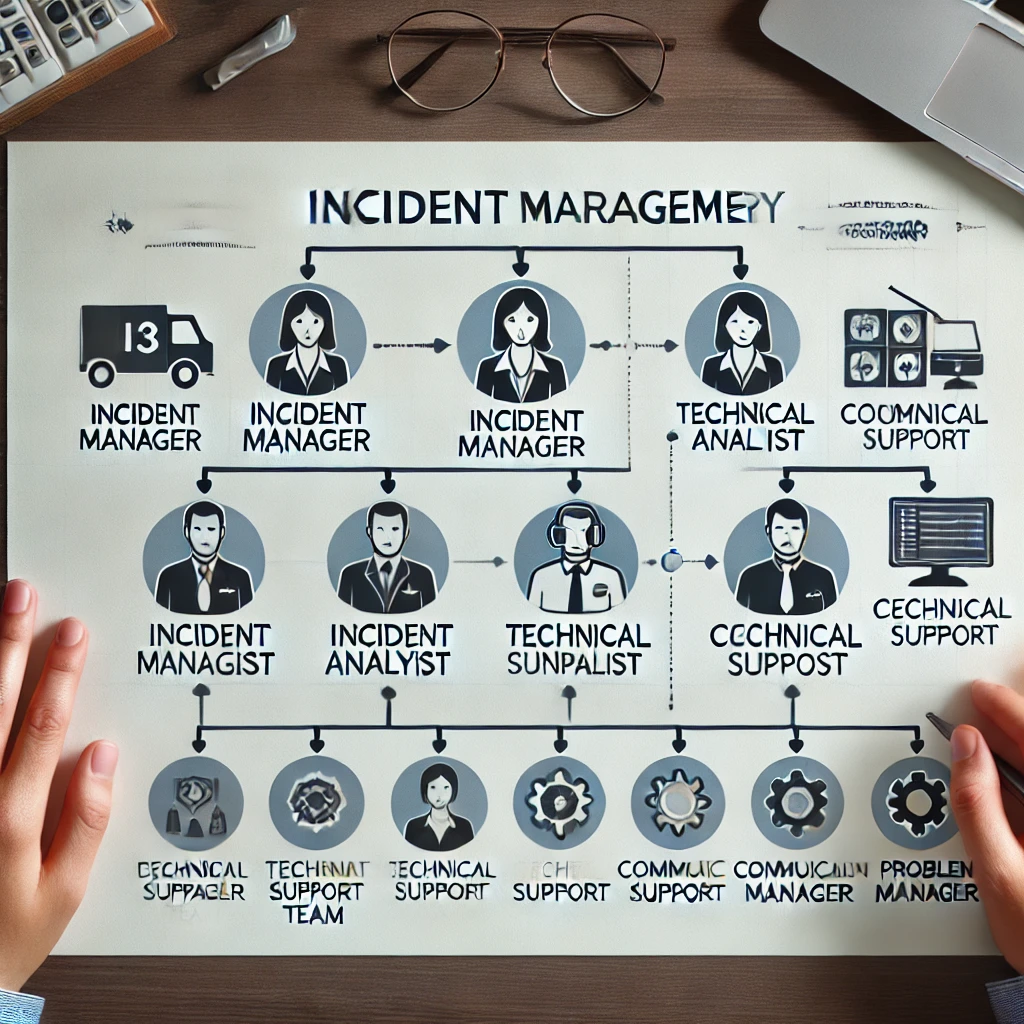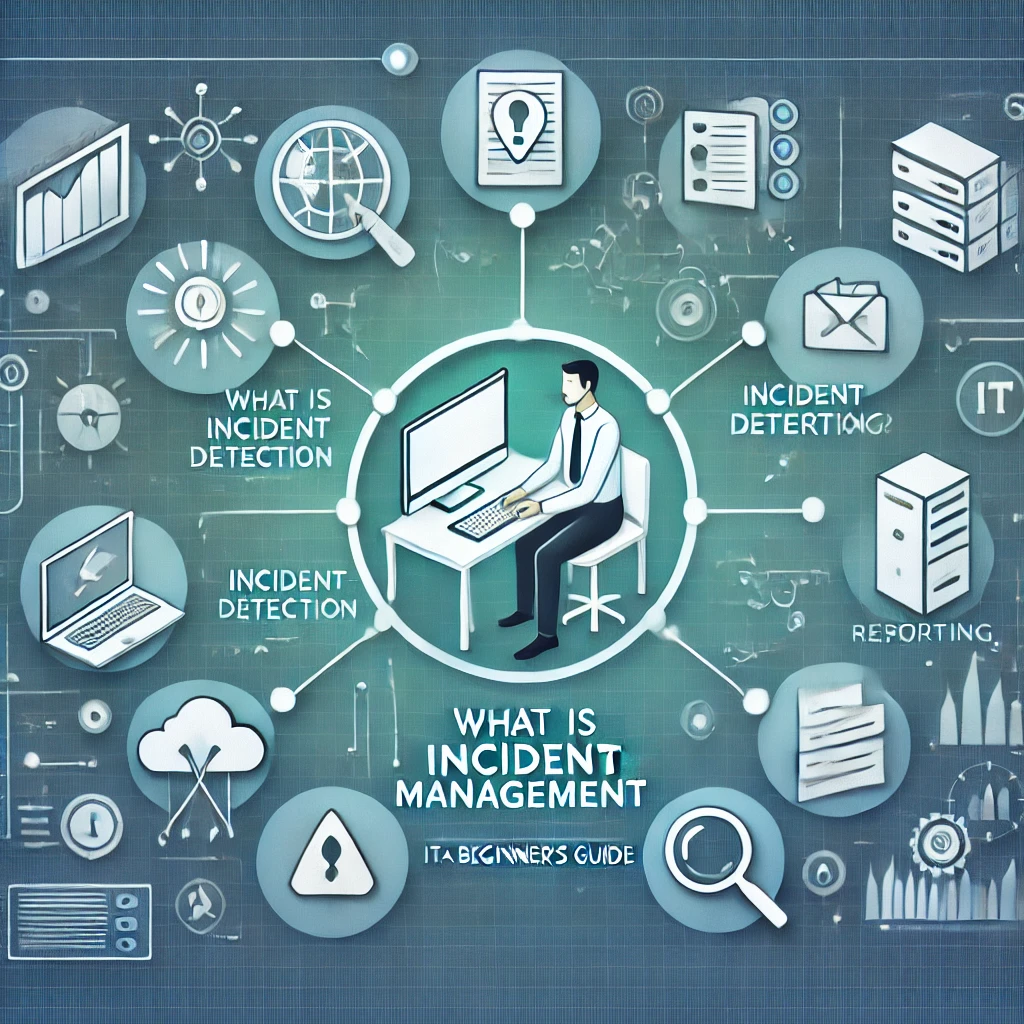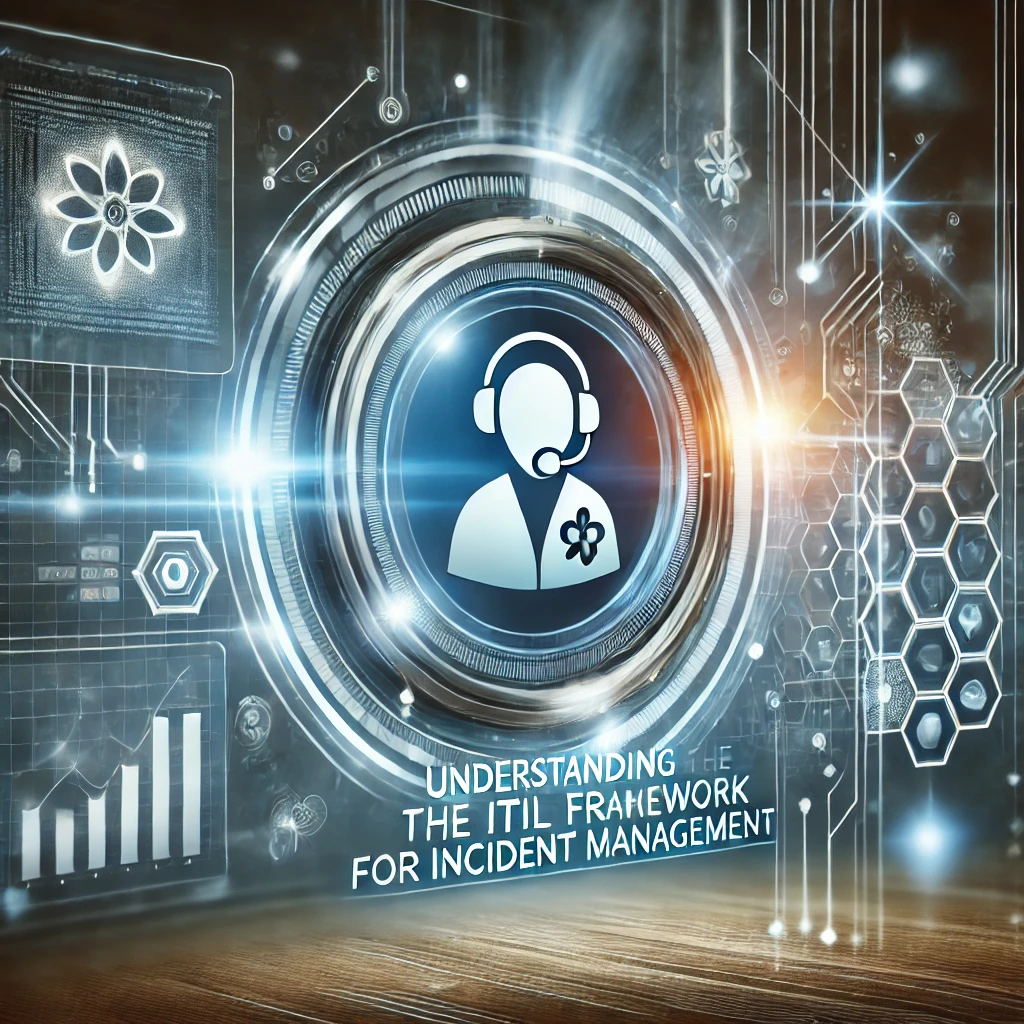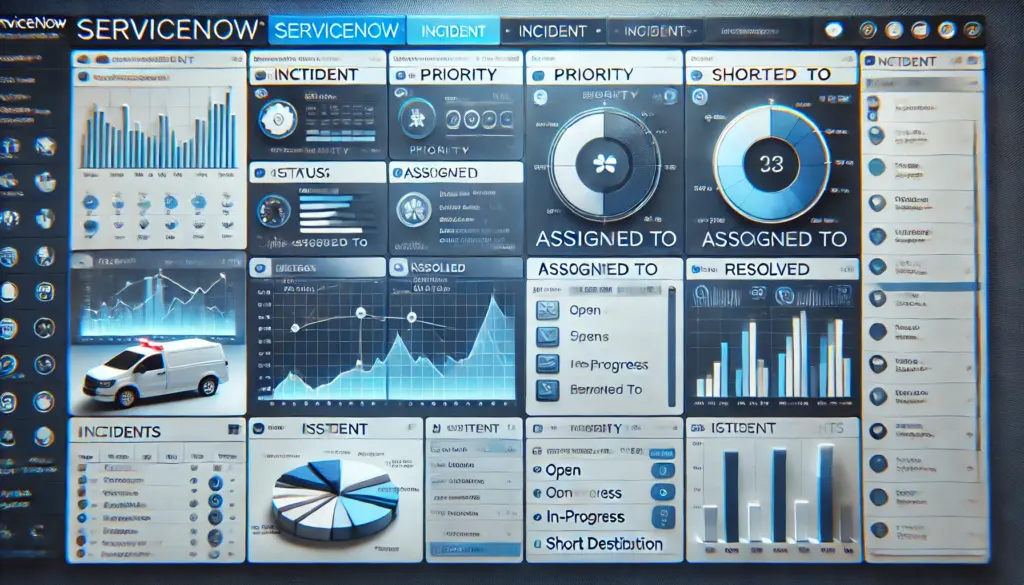Key Roles and Responsibilities in Incident Management
Introduction
Effective incident management requires a well-defined team with clear roles and responsibilities. This ensures a swift response to incidents, minimizing downtime and maintaining service quality. In this guide, we’ll explore the essential roles involved in incident management and their key responsibilities.

1. Incident Manager
Primary Role: Oversee the entire incident management process.
Responsibilities:
- Leading incident response efforts
- Ensuring incidents are properly categorized and prioritized
- Coordinating communication between teams
- Conducting post-incident reviews and reports
2. Incident Analyst
Primary Role: First responder to incidents, focusing on detection and initial diagnosis.
Responsibilities:
- Monitoring systems for potential incidents
- Analyzing incident data to identify root causes
- Escalating issues to relevant teams when necessary
3. Technical Support Team
Primary Role: Provide technical expertise to resolve incidents.
Responsibilities:
- Investigating and diagnosing technical issues
- Implementing fixes and workarounds
- Collaborating with other technical teams for complex incidents
4. Communication Manager
Primary Role: Manage internal and external communications during incidents.
Responsibilities:
- Providing timely updates to stakeholders
- Drafting status reports and incident notifications
- Ensuring clear, consistent communication across channels
5. Problem Manager
Primary Role: Focus on preventing recurring incidents by identifying underlying issues.
Responsibilities:
- Conducting root cause analysis
- Developing and implementing long-term solutions
- Working closely with the incident management team to reduce future risks

The Importance of Defined Roles
Clear roles and responsibilities:
- Improve response time during critical incidents
- Enhance coordination among teams
- Reduce confusion and communication gaps
- Ensure accountability and continuous improvement
Conclusion
Incident management is a team effort. Defining roles and responsibilities ensures efficient incident handling, quick recovery, and continuous service improvement. As you build your incident management knowledge, understanding these roles will help you excel in any incident-related environment.





Great explanation